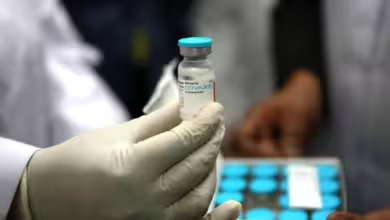AI Tool RETFound can spot heart irregularities through eye scan
After learning retinal image patterns from unlabeled data, RETFound was fine-tuned with labeled images to diagnose conditions like diabetic retinopathy with high accuracy

Researchers at Moorfields Eye Hospital NHS Foundation Trust in London have developed an innovative artificial intelligence (AI) tool called RETFound that analyzes retinal images to diagnose and predict a wide range of health conditions, including irregularities in the heart. This breakthrough technology is one of the first successful applications of a foundation model like ChatGPT to medical imaging, with enormous potential to transform healthcare.
The Promise of Medical Imaging AI
AI has shown increasing promise in healthcare, providing clinical decision support, operational efficiency, and democratized access to expertise. However, a key barrier has been the need for large sets of manually labeled medical images to train AI models, which is expensive, time-consuming, and often inconsistent. RETFound overcomes this through an unsupervised self-learning approach.
Training on Abundant Unlabeled Data
RETFound was trained on a massive dataset of 1.6 million retinal images without any manual labeling. Similar to language models like ChatGPT, it learned patterns in retinal scans by predicting missing portions of images. This self-supervised learning eliminated the need for human labeling of each training image. Pearse Keane, an ophthalmologist and co-author of the paper, elaborated on RETFound, stating that “Over the course of millions of images, the model somehow learns what a retina looks like and what all the features of a retina are.”
Assessing Overall Health from the Eyes
As a direct view into the body’s smallest capillaries, retinal images provide unique visibility into cardiovascular health. Moreover, retinas share functional and developmental similarities with brain neural tissue as an extension of the central nervous system. This enables holistic health evaluation.
Specialized Expertise Still Required
However, interpreting the nuances and intricacies within retinal scans requires specialized clinical expertise. RETFound serves to augment human practitioners through quantitative pattern recognition across large datasets. But human oversight remains vital for safe and effective deployment.
Versatile Applications Across Systemic Conditions RETFound
After pre-training on unlabeled data, researchers fine-tuned RETFound using a small set of labeled images to recognize specific conditions like diabetic retinopathy. For detecting diabetic retinopathy, it achieved outstanding accuracy between 0.822-0.943(1 is perfect, 0.5 is random chance) across datasets. Beyond eye diseases, RETFound also shows promise in predicting systemic conditions like heart failure, strokes, heart attacks, and Parkinson’s disease,where it outperformed the similar AI Models. Researchers hope to apply similar techniques to modalities like MRI and CT scans.
The authors made RETFound publicly available for others to adapt and optimize for their own patient populations and settings around the world.The code used to train, fine-tune and evaluate RETFound is available at github and entire research paper is available nature.com.
Limitations and Ethical Considerations
While RETFound represents a breakthrough, limitations in predicting systemic diseases highlight the need to transparently communicate biases. As with any AI tool, it is critically important to ensure patient safety, avoid unintended consequences, and rigorously evaluate performance across diverse real-world populations before clinical integration. RETFound’s limitations must also be transparently shared to ensure ethical and safe usage of any models derived from it. The pretrained biases could persist into future models.
A New Paradigm for Scalable Medical Imaging AI
By demonstrating the viability of self-supervised foundation models for healthcare, RETFound sets an exciting precedent to leverage unlabeled data. This can dramatically scale development of accurate and affordable AI tools for improving patient outcomes. While further optimization is needed, the future possibilities are boundless.
Please, also have a look into : New research shows Covid vaccines used in India do not increase heart attack risk



